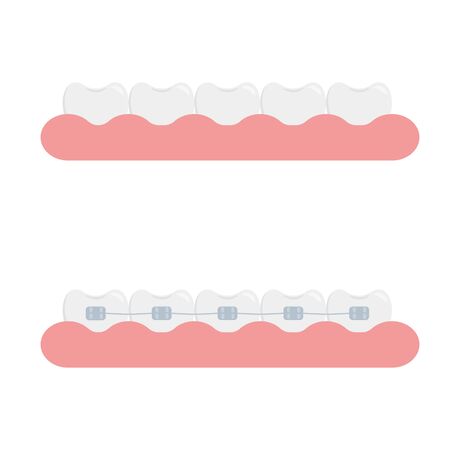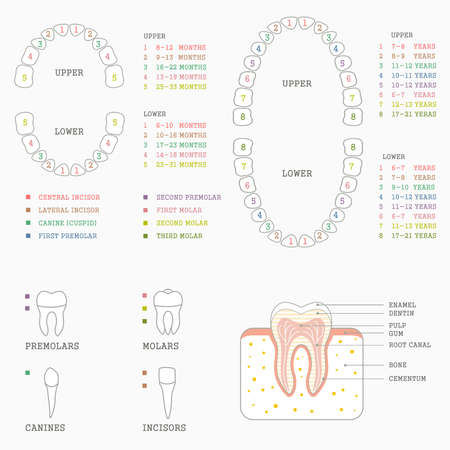Introduction to Aesthetic Clinics in the UK
Aesthetic clinics across the UK have seen a remarkable surge in popularity, becoming an integral part of contemporary British self-care culture. Whether nestled in the heart of bustling London or tucked away in charming towns, these clinics offer more than just treatments—they create spaces where artistry and science meet to enhance natural beauty. What sets the British approach apart is its emphasis on subtlety and personalisation. Rather than dramatic transformations, UK clinics focus on refined enhancements that align with each individual’s unique features and lifestyle. This gentle, tailored approach is deeply rooted in British values of authenticity and understated elegance. If you’re considering your first visit, you’ll find that the experience is designed to be warm, welcoming, and reassuring—placing your comfort and confidence at the very centre of the journey.
2. Making the Right Choice: Selecting Your Clinic
Embarking on your first aesthetic clinic consultation in the UK can feel both exciting and daunting, but choosing the right clinic is a crucial first step. The British beauty scene places a strong emphasis on safety, professionalism, and results that enhance rather than mask your natural features. Here are some key factors to consider when selecting a reputable aesthetic clinic and practitioner:
UK-Specific Certifications
Ensure your chosen clinic and practitioner hold recognised UK certifications. Look for:
| Certification/Regulator | Purpose | What to Check |
|---|---|---|
| CQC (Care Quality Commission) | Regulates clinics providing medical treatments | Clinic should be registered with the CQC for treatments like Botox or fillers |
| GMC (General Medical Council) | Registers doctors practising medicine in the UK | Your doctor should have an active GMC number and specialist registration in relevant fields |
| NMC (Nursing & Midwifery Council) | Registers nurses and midwives in the UK | Nurse practitioners must be NMC-registered with cosmetic experience |
| Save Face Accreditation | Independent quality assurance for non-surgical treatments | Clinics/practitioners with Save Face listing follow best practice guidelines |
Reviews & Word-of-Mouth Recommendations
The British public tends to value authenticity and trust, so online reviews carry genuine weight. Explore trusted review platforms such as Trustpilot, Google Reviews, or RealSelf for honest feedback. Don’t hesitate to ask friends or colleagues about their own experiences—personal recommendations often reveal subtle details about practitioners’ bedside manner and aftercare.
Location & Convenience Matters
The convenience of your clinic’s location can impact your overall experience, especially if you require follow-up visits. Choose a clinic easily accessible via public transport—London, Manchester, Edinburgh and other major cities offer numerous central options—but also consider quieter suburban clinics if privacy is a priority. Many British clients prefer discrete locations that blend seamlessly into neighbourhood high streets.
Your Decision Checklist
- Credentials: Are all practitioners properly certified?
- Transparency: Does the clinic openly share pricing, risks, and expected outcomes?
- Aesthetics: Do before-and-after photos align with your desired look?
- Atmosphere: Does the space feel welcoming, hygienic, and professional?
- Accessibility: Is it easy to get there—and back—for aftercare?
Taking these UK-specific factors into account will help you make an informed decision and set the stage for a safe, satisfying aesthetic journey.

3. The British Consultation Experience: Warm Welcomes & Expectation Setting
Stepping into an aesthetic clinic in the UK for your first consultation is often a uniquely British experience, blending professionalism with a subtle charm. As you arrive, you’ll likely be greeted by staff with a polite smile and a friendly “How do you do?”—small talk is almost ritual here, helping to ease those first-visit nerves. Reception areas are usually calm and tastefully decorated, reflecting the understated elegance typical of British design sensibilities.
Before anything clinical begins, expect to fill in a few forms. This admin moment isn’t rushed; rather, it’s handled with gentle efficiency. You might notice staff offering you a cup of tea or coffee—a comforting gesture that sets the tone for the appointment. The paperwork will ask about your medical history, lifestyle, and what results you hope to achieve. British etiquette means privacy and discretion are paramount; information is handled sensitively, and personal boundaries are respected throughout.
The atmosphere during this initial stage feels reassuringly unhurried. Practitioners or nurses may introduce themselves with just their first names, fostering a sense of approachability while still maintaining professionalism. There’s often an emphasis on setting realistic expectations right from the start: you’ll be encouraged to share your concerns openly, but don’t be surprised if the conversation includes gentle honesty about what treatments can realistically deliver. In true British style, there’s never any hard sell or pressure—just clear information and support as you begin your aesthetic journey.
4. Your Treatment Options: Transparency and British Professionalism
When it comes to discussing potential treatments at your initial consultation, UK practitioners are renowned for their transparency and adherence to the highest professional standards. You’ll quickly notice that rather than a hard-sell approach, there is a genuine commitment to helping you understand what is truly suitable for your needs. This British way of communication is refreshingly straightforward, prioritising clear explanations over jargon and always respecting your autonomy.
Exploring Suitable Treatments Together
Your practitioner will take the time to walk you through all viable options, highlighting the benefits and limitations of each. There’s often a collaborative atmosphere, where your goals and preferences are carefully listened to. Expect questions about your lifestyle, medical history, and desired outcomes—this helps ensure that recommendations are tailored just for you. The use of visual aids or treatment charts is common, offering clarity without overwhelming you with unnecessary details.
Managing Expectations with Honesty
A key hallmark of British professionalism is managing expectations in a realistic and compassionate manner. Practitioners will not promise miraculous results; instead, they’ll provide an honest assessment of what each treatment can achieve. If a particular result isn’t attainable or if multiple sessions may be necessary, this will be communicated openly. It’s all about setting you up for satisfaction rather than disappointment.
How UK Clinics Prioritise Your Safety
Patient safety sits at the heart of every recommendation. Practitioners discuss potential risks and side effects openly, ensuring you are fully informed before making any decisions. They will also check for contraindications based on your health profile, sometimes suggesting alternative routes if a treatment isn’t deemed safe for you. This transparent risk-benefit analysis reflects the strong regulatory standards upheld by UK clinics.
| Treatment Aspect | What You Can Expect |
|---|---|
| Discussion Style | No-pressure, informative dialogue focused on your needs |
| Treatment Options | Clear explanations of all suitable procedures, pros & cons included |
| Expectation Management | Honest advice on achievable results and timelines |
| Safety Protocols | Full disclosure on risks and pre-treatment assessments |
| Your Role | Active participant in decision-making process |
This uniquely British blend of professionalism and transparency ensures that every step feels empowering rather than overwhelming. Whether you’re seeking subtle enhancements or transformative changes, you’ll leave your consultation feeling well-informed, respected, and never rushed into making a decision.
5. Questions You Should Ask: A Guide for UK Clients
When you step into a UK aesthetic clinic for your first consultation, it’s natural to feel a bit apprehensive. One of the best ways to ease your nerves and make informed decisions is by asking the right questions. Not only does this empower you, but it also ensures that the clinic upholds British safety standards and ethical practices. Below are some essential queries to have up your sleeve during your appointment.
Understanding Practitioner Qualifications
First things first, don’t hesitate to ask about your practitioner’s credentials. In the UK, reputable clinics will be proud to share details of their registration with organisations such as the General Medical Council (GMC) or the Nursing and Midwifery Council (NMC). Confirm whether your treatment provider is trained and experienced in the specific procedure you’re considering.
British Safety Standards & Regulation
Safety should always come first. Ask if the clinic is regulated by the Care Quality Commission (CQC) or another relevant body, depending on the treatments offered. It’s perfectly British to be politely inquisitive—check what protocols they follow for hygiene, infection control, and emergency procedures. Genuine professionals will appreciate your thoroughness.
Consent and Communication
Open communication is key. Ensure there’s a robust consent process in place, including a clear explanation of risks, benefits, and alternative options. Ask if you’ll have time to reflect before making any decisions—most UK clinics encourage this, aligning with good practice and patient autonomy.
Transparent Pricing and Payment Policies
No one likes nasty surprises when it comes to costs! Request a detailed breakdown of prices for your chosen treatment, including any potential follow-up appointments or products you might need. Clarify payment terms and ask about cancellation policies—British clinics typically outline these clearly in writing.
Aftercare Support Specific to UK Clinics
Your journey doesn’t end once you leave the clinic. Ask about aftercare services: What support is available if you experience side effects? Is there an emergency contact number? Are review appointments included in the price? UK clinics usually pride themselves on comprehensive aftercare and ongoing support.
By coming prepared with these questions, you’ll not only feel more confident but also ensure your aesthetic journey aligns with the highest British standards of safety and professionalism. Remember: there’s no such thing as too many questions when it comes to your well-being!
6. Personal Reflections: My First UK Aesthetic Consultation
Stepping into my first UK aesthetic clinic felt surprisingly welcoming—think soft lighting, a calming scent of fresh linen, and a friendly receptionist greeting me with that quintessential British warmth. It wasn’t just about clinical professionalism; there was an understated elegance to everything, from the subtle artwork on the walls to the gentle offer of a cup of tea while I waited. The experience felt more like being invited into someone’s thoughtfully curated sitting room than a medical appointment.
The consultation itself began with a genuine conversation. My practitioner—a softly spoken professional with impeccable manners—asked open-ended questions about my expectations and concerns. Unlike some rushed consultations I’d heard about abroad, there was no sense of hurry here. Instead, she listened attentively, nodding encouragingly, occasionally jotting notes in neat handwriting. There was a gentle reassurance in her tone, peppered with classic British understatement (“We’ll keep things very natural and subtle, nothing too over the top”).
I noticed small cultural nuances throughout: the tactful way risks were explained without alarmism, the discreet privacy maintained at every stage, and even the language—words like “a little fresher” or “soft enhancement” instead of anything drastic. The overall atmosphere was one of collaboration rather than prescription; I felt empowered to make informed choices at my own pace.
This sensory-rich introduction not only put me at ease but also highlighted what makes UK clinics unique—their blend of professionalism and quiet charm, where comfort is as carefully considered as clinical excellence. By the end, any nerves I’d brought with me had melted away, replaced by anticipation for a journey tailored thoughtfully to me.
7. What Happens Next: Booking, Preparation, and UK Aftercare Culture
After your initial aesthetic clinic consultation in the UK, you’ll find the next steps are thoughtfully structured to make you feel informed and at ease. Here’s a summary of what typically follows and how uniquely British etiquette and aftercare culture shape the experience.
Booking Your Procedure: British Courtesy and Flexibility
If you decide to proceed, your practitioner or clinic coordinator will help schedule your treatment at a mutually convenient time. In the UK, booking etiquette is all about clarity and courtesy—expect detailed confirmation emails, guidance on deposits (if applicable), and flexibility to accommodate changes should life get in the way. You’re encouraged to ask questions or request additional information before confirming your slot; transparency is highly valued.
Pre-Treatment Preparation: Thoughtful Guidance
You’ll receive tailored preparation instructions well ahead of your appointment—often via email or a printed leaflet. These include advice on skincare routines, medication considerations, and lifestyle tweaks (such as avoiding certain supplements or alcohol). The aim is always to ensure your comfort and the best possible results, in line with the UK’s reputation for thoroughness and client-centred care.
Aftercare Support: The British Way
Once your treatment is complete, aftercare becomes paramount. UK clinics pride themselves on comprehensive support: expect clear aftercare leaflets, emergency contact details, and open invitations to reach out with any concerns—no question is too small. It’s common to be offered a follow-up appointment or check-in call, reflecting the British emphasis on ongoing relationships rather than one-off transactions.
Ongoing Communication: Keeping Connected
Communication doesn’t end at the clinic door. Many UK clinics follow up with friendly emails or calls to check on your progress, invite feedback, or provide seasonal skincare tips. This ongoing dialogue fosters trust and ensures you always feel supported—a hallmark of the UK client experience.
In Summary
Your journey doesn’t stop after the consultation; it’s just the beginning of a personalised process marked by professionalism, respect, and genuine care. From booking etiquette to attentive aftercare, navigating aesthetic treatments in the UK means being looked after every step of the way.


